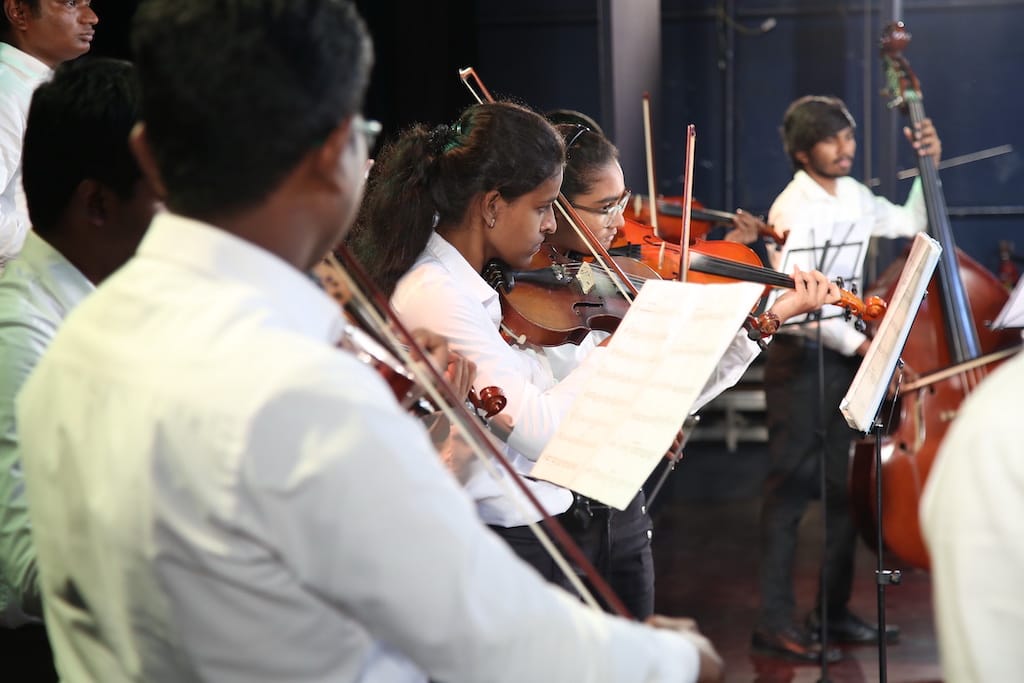Fostering Musical Excellence: From Conservatoire Training to Community Building

In Europe and the USA, while aspiring school-aged athletes spend their Saturdays on sports, their music-loving peers come together to train as musicians. For many of these young aspirants, this training is provided by their county or state. However, for those who excel, there is the opportunity to receive the highest level of training at a conservatoire. Here, they receive individual instrumental and vocal lessons from senior professors (usually on multiple instruments), attend classes in aural and theory training, music history, chamber music, choral singing, and orchestral playing. Additionally, they give regular concerts, both within the institution and a few times a year to the general public in prestigious venues.
Benefits of a Conservatoire Education
I had the good fortune to receive this type of training at Trinity College of Music, where I studied every Saturday from age 9 until 18. By the time I auditioned to become a full-time music student, I had a thorough musical training, professional experience (I had already made my Wigmore Hall debut thanks to Trinity!), and knew what to expect from my chosen path. However, I did not realize that it had also given me a community of like-minded friends who, usually marginalized at school for our musical interests, found a space to be passionate about music. I believe we learned as much from each other as from our classes and inspired each other towards excellence.
Creation of the International Pre-College Music Programme (IPCMP)
15 years later, when I returned to Trinity as a professor, I often sat on the audition panel for the senior college and realized the extraordinary advantage of such an education. However, as the director of Trinity’s work in India, I also realized that without access to such training, passionate young musicians in India could not reasonably compete with their international peers when trying to win scholarships to attend prestigious conservatoires. That’s why I eagerly accepted the opportunity to help create the International Pre-College Music Programme (IPCMP) with Musée Musical, to ensure that young musicians in India are no longer disadvantaged.
Fostering Excellence in Music in India
We took three years to set up the program, ensuring that we had the best educators and an educational model that worked around the practicalities of Indian schooling and students’ access to musical training. Our students receive the same elements of training as their Western counterparts, including classes in theory, history, aural, chamber music, and orchestral/choral opportunities, but their classes are carefully timed around their Saturday high-school classes. They also come together for a few days of intensive training a few times a year during the school holidays and give concerts. We offer various modes of study, including two-year intensive courses that can be taken after high school, a standard course that runs alongside their schooling, and even a one-year ‘aspirant’ course for less experienced students to see if this kind of training is suitable for them.
Achieving Ambitions and Nurturing Future Generations
Our ultimate goal is to not only ensure that students from India can compete for places at international conservatoires on equal footing with their foreign peers but also to create a community where excellence in music is as normal and highly regarded as excellence in any other field. This way, we can recognize and fulfill the ambitions of our young musicians and, ultimately, ensure that they have an environment in India conducive to their return and can inspire, educate, and nurture future generations.





